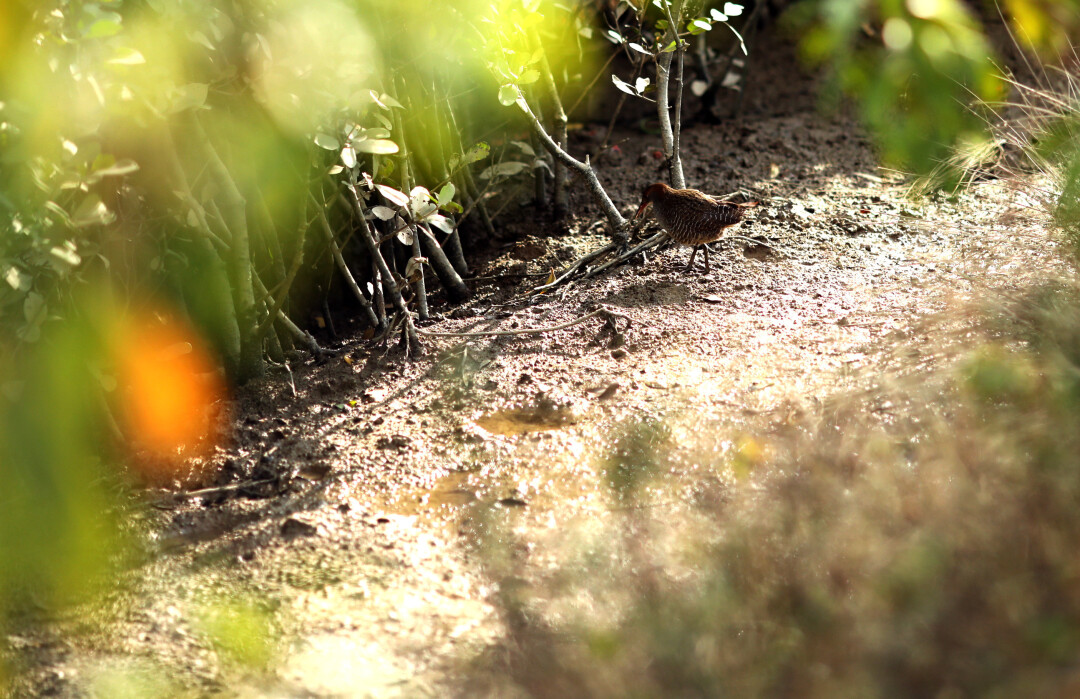Li Minglin and his colleagues left the Zhanjiang Mangrove Police Station in the early morning. They have an important task in the mangrove forest, which falls under the police station's jurisdiction.

(Photo: Nanfang Daily)
Li and his team received a report the night before that some fishermen had been illegally digging up peanut worms on Lingtou Island in the Zhanjiang Mangrove National Nature Reserve, the largest and densest natural reserve of its kind in China. The police are going to catch them in the act.
Peanut worms, a type of Sipuncula, can digest the organic matter in the mud where they live. Their excretion becomes the nutrient for the growth of mangroves. The worms are also edible in south China's Guangdong Province. Because of their good taste, they are expensive in the local market, which triggers illegal digging.
The fishermen were caught and released the bucket of worms they just dug up into the water. The police educated the fishermen and asked them to promise never to do it again.

(Photo: Nanfang Daily)
The Zhanjiang Mangrove Police Station was established in Guangdong in 2012, and Li was one of the first three people to join the station.
While patrolling the reserve, Li and his colleagues are keen to introduce the mangroves to tourists and share their importance to the ecosystem with them.
China's mangrove forests are mainly distributed in areas including Guangdong Province, Guangxi Zhuang Autonomous Region and Hainan Province. Guangdong has the largest mangrove area.

(Photo: Nanfang Daily)
Mangroves can form natural sea shelterbelts to prevent wind and waves, protect levees and shores, promote silt formation and purify seawater. Many organisms, including birds, amphibians, insects and fish, rely on mangroves.
As the only mangrove police station in the country, Zhanjiang Mangrove Police Station shoulders the important responsibility of protecting the largest mangrove nature reserve in China.

















